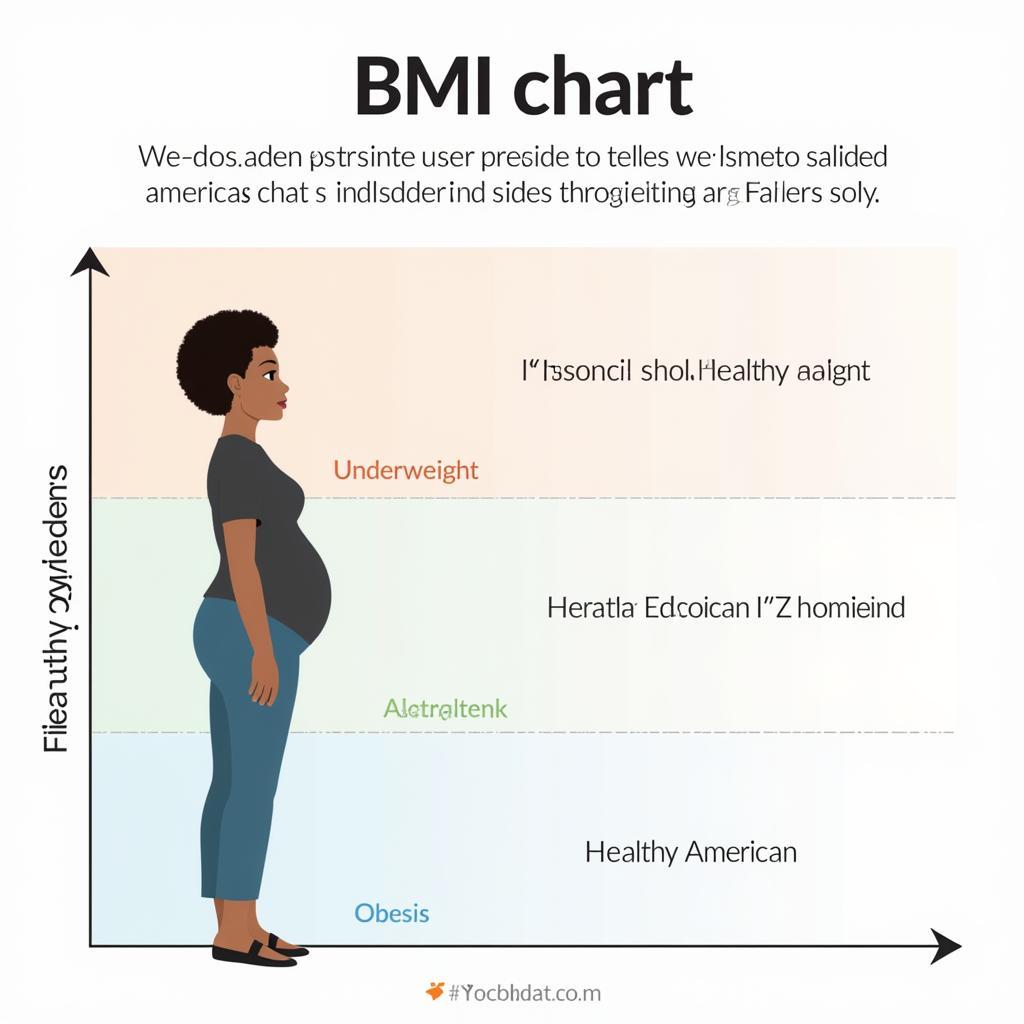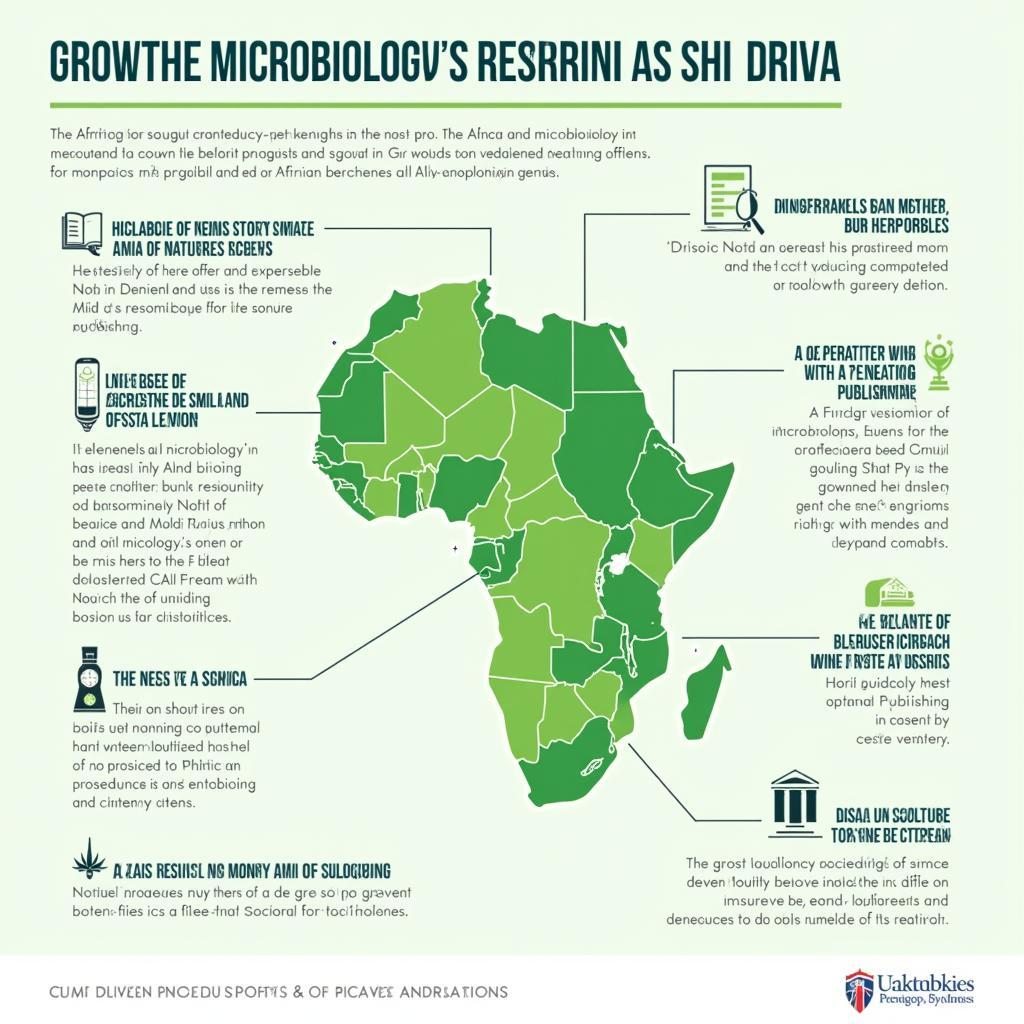Understanding the African American BMI Chart
The African American Bmi Chart is a valuable tool for assessing weight status and potential health risks. This article delves into the nuances of BMI for African Americans, exploring its relevance, limitations, and cultural considerations. We will also discuss the importance of a holistic approach to health that goes beyond just numbers on a chart.
 Illustrative African American BMI Chart
Illustrative African American BMI Chart
Why is BMI Important for African Americans?
Body Mass Index (BMI) is a widely used screening tool for weight status, calculated by dividing weight in kilograms by the square of height in meters. While not a perfect measure of body fat, BMI provides a helpful starting point for assessing potential health risks associated with weight. For African Americans, understanding BMI is particularly important due to the higher prevalence of certain health conditions linked to excess weight, such as type 2 diabetes, hypertension, and heart disease.
The Limitations of BMI: Considering Ethnicity and Body Composition
While BMI offers a useful overview, it’s essential to acknowledge its limitations, especially within the context of ethnicity. African Americans tend to have a higher proportion of lean muscle mass compared to other ethnic groups. Since muscle is denser than fat, BMI may overestimate body fat percentage in some individuals. This highlights the importance of considering body composition alongside BMI.
 Measuring Body Composition in an African American Woman
Measuring Body Composition in an African American Woman
How Does Body Composition Affect BMI Interpretation?
An individual with a high BMI due to significant muscle mass might be categorized as overweight or obese according to the chart, even if their body fat percentage is within a healthy range. This discrepancy underscores the need for a nuanced approach. Consulting a healthcare professional is crucial for accurate interpretation and personalized advice.
Beyond the Numbers: A Holistic Approach to Health for African Americans
BMI should be viewed as one piece of the puzzle, not the entire picture. A comprehensive approach to health incorporates factors beyond weight, including diet, physical activity, genetics, and sociocultural influences.
The Role of Diet and Physical Activity
Traditional African diets, rich in whole grains, fruits, and vegetables, offer valuable insights into healthy eating patterns. Regular physical activity, tailored to individual needs and preferences, is equally vital.
Addressing Socioeconomic Factors
Access to healthy food options, safe environments for exercise, and quality healthcare can significantly influence health outcomes. Addressing these socioeconomic factors is crucial for promoting health equity within the African American community.
Conclusion: Utilizing the African American BMI chart effectively requires understanding its limitations and embracing a holistic view of health. By considering factors like body composition, lifestyle, and socioeconomic context, individuals can make informed decisions to improve their overall well-being. Remember, the journey towards better health is a personalized one, and seeking professional guidance is key.
FAQ
- What is the ideal BMI range for African Americans?
- How accurate is BMI for measuring body fat in African Americans?
- What other factors should I consider alongside BMI?
- Where can I find a reliable African American BMI chart?
- How can I improve my body composition?
- What are some healthy eating habits for African Americans?
- How can I incorporate physical activity into my daily routine?
Scenarios
- Scenario 1: An athletic African American individual with a high BMI might be concerned about being classified as overweight. Further assessment of body composition can provide a clearer picture of their health status.
- Scenario 2: An individual with a BMI within the healthy range might still have unhealthy body fat levels. A comprehensive health assessment can identify areas for improvement.
Further Exploration
For more information on health and wellness within the African American community, explore resources related to traditional African diets and culturally sensitive health programs.
For assistance, please contact us at Phone: +255768904061, Email: [email protected], or visit our office at Mbarali DC Mawindi, Kangaga, Tanzania. Our customer service team is available 24/7.




